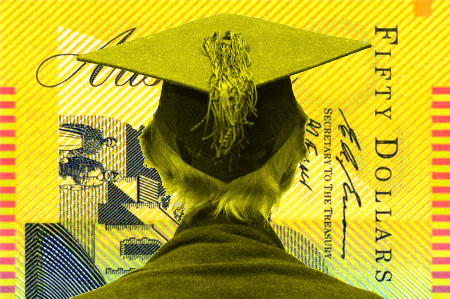Student loan rise looms
 Graduates will soon face high student debt repayments.
Graduates will soon face high student debt repayments.
Millions of Australians will face higher student loan repayments from June 1 as the government prepares to increase the indexation rate to 7.1 per cent, adding an average of $1,760 per year to the repayment amount, according to new analysis.
Graduates aged between 20 and 29 are expected to be the hardest hit by the increase, with their repayments set to rise by an average of $2,069 on the median debt of $29,138.
The indexation, which applies to Higher Education Loans Program (HELP) debts, will have a significant impact on arts, economics, law and business graduates who saw their contributions tripled under the Morrison government.
Annual fees for these graduates will rise from $16,323 to $17,483, with debt accumulating at a faster rate than previous generations.
Andrew Norton, a higher education policy expert from Australian National University, conducted the analysis, revealing the 7.1 per cent rise would add around six months to the average student's repayment time.
He also noted that while repayment thresholds are indexed, a different formula is used, and people with incomes below the indexed amount could fall back to a lower repayment category.
Norton criticised the Morrison government's decision to increase the amount of student contributions to arts and humanities subjects, saying; “It will take forever for a lot of these graduates to ever repay their debt”.
He warned that the 7.1 per cent increase would add to the government's existing $74 billion debt and increase the amount of “bad debt” that is never repaid.
Education Minister Jason Clare says he acknowledges that affordability is a significant issue, and the current review of higher education is examining the matter.
He emphasised that the Higher Education Loan Program is built on the principle of paying what one can afford and that repayments are set as a percentage of a graduate's income.
Meanwhile, Greens leader Adam Bandt has called for the forgiveness of all HECS debt, arguing that Australia should revert to the pre-1980s policy of free higher education.







 Print
Print